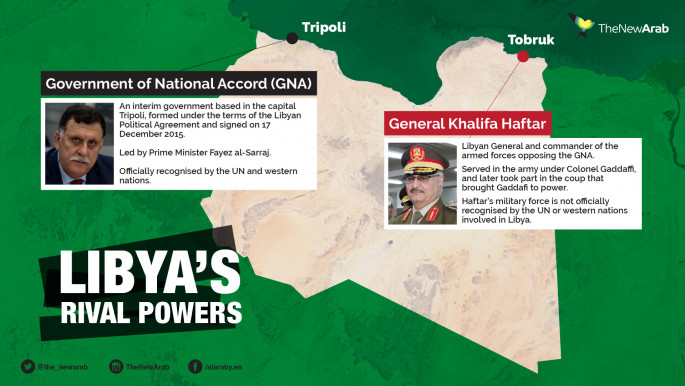A powerful militia known for
smuggling people from Libya is seeking legitimacy from the Tripoli government in exchange for preventing migrant boats from leaving the country, a senior group member has said.
The Anas al-Dabbashi brigade struck a deal with Libya's UN-backed Government of National Accord (GNA) this summer to clamp down on
trafficking, a senior member who gave his name as Mohamed told
Reuters.
With Italy and the EU offering millions of euros to local authorities in Libya who can
reduce trafficking, armed groups have an interest in proving that they are the only ones who can police the territory.
The need for the GNA to reach a deal with local militias also illustrates the power and influence they still hold in western Libya since a 2011 uprising ousted Muammar Gaddafi from power.
The GNA, under pressure from Italy to halt
migrant flows, has exerted pressure on the Dabbashi brigade, Mohamed said.
The GNA "said that they would gather all the cities west of Tripoli against us, and they would come and fight us," he told Reuters.
|
 |
With the help of the coastguard, the several-hundred strong militia has cracked down on migrant departures |
 |
|
"On the other hand, they have offered to let us join the police, and let us join the military," Mohamed said.
"If this plan goes forward and the (Tripoli) government was telling the truth ... in six months time everybody in this battalion will be like normal police."
Local sources say there has been at least one meeting between government officials and Ahmed al-Dabbashi, one of the main "facilitators" of human trafficking in Libya.
Mohamed said there had been a number of such meetings, with the militia group offered the possibility of an amnesty for past smuggling activities.
Pressure to stop migrants
With the help of the coastguard, the several-hundred strong militia has cracked down on departures, reportedly leading to an 80 percent fall in the arrival of
rescued migrants in Italy in August.
International media reports said that Dabbashi had received five million euros directly from Italy's secret services to stop the migrant boats, a charge that Mohamed denies.
 |
|
| Click to enlarge |
|
Italy has also denied making any direct payments to armed militias.
The government in Rome has a national election looming in the first half of next year and is under pressure to show it can stop migrant flows from Libya.
Overall, there have been more than 100,000 arrivals in Italy this year, a decline of more than 20 percent compared to 2016, official Italian data shows.
Libyan authorities on Saturday turned back more than 1,000 migrants traveling in eight boats. The Dabbashi brigade on the same day intercepted about 3,000 more.
Around 1,500 people were rescued at sea and brought to Italy.
"A lot of people are pressuring us to stop this," Mohamed said of Dabbashi's crackdown on departing migrant boats.
"They want to start (human trafficking) again."
Libya has been wracked by chaos since the 2011 uprising, with rival authorities and militias battling for control of the oil-rich country.
The GNA has struggled to impose its authority on Tripoli and other parts of western Libya, and has been rejected by factions led by military strongman Khalifa Haftar that control the east of the country.








 Follow the Middle East's top stories in English at The New Arab on Google News
Follow the Middle East's top stories in English at The New Arab on Google News


